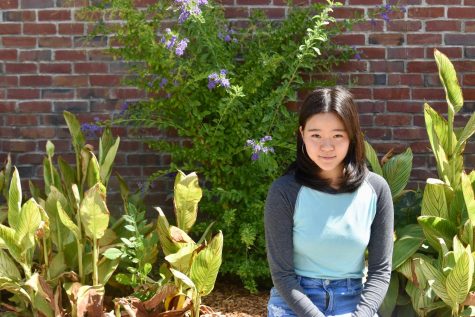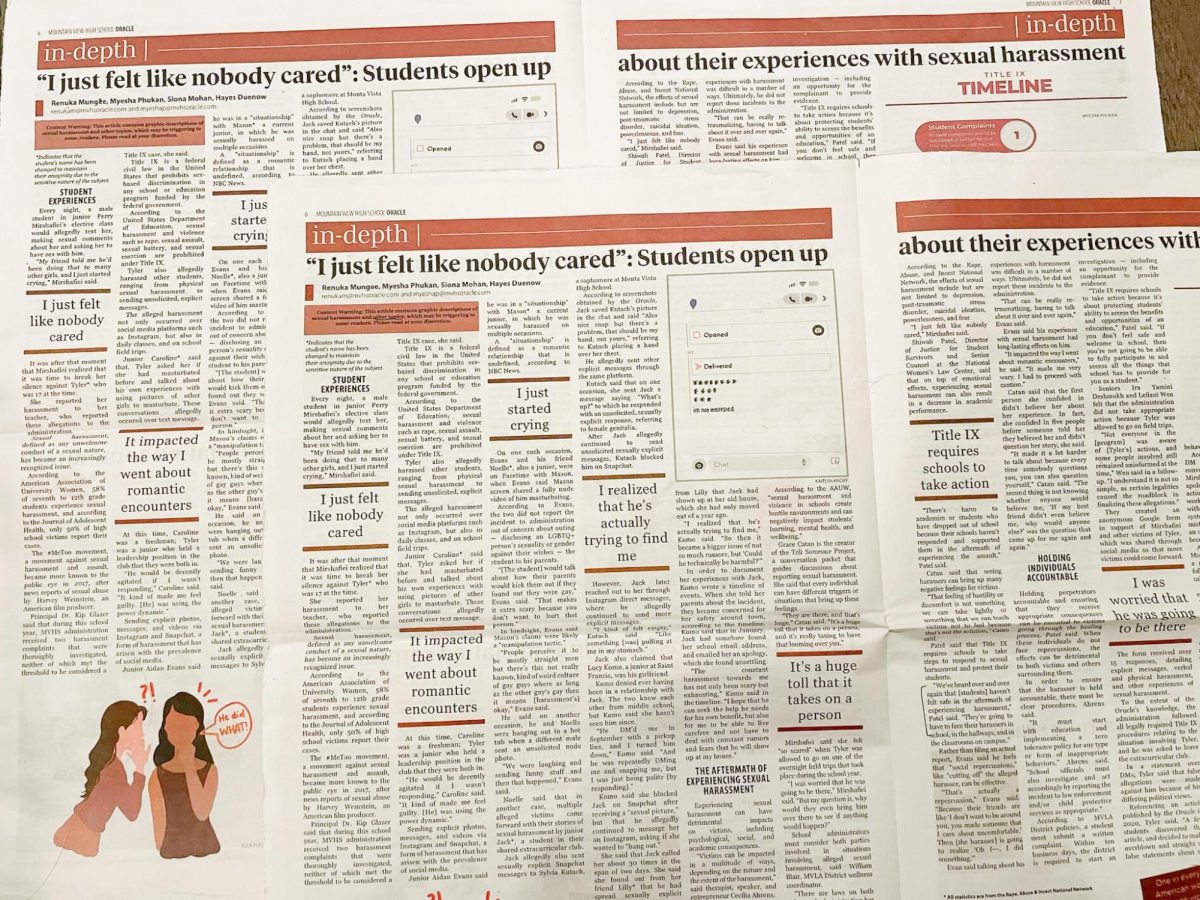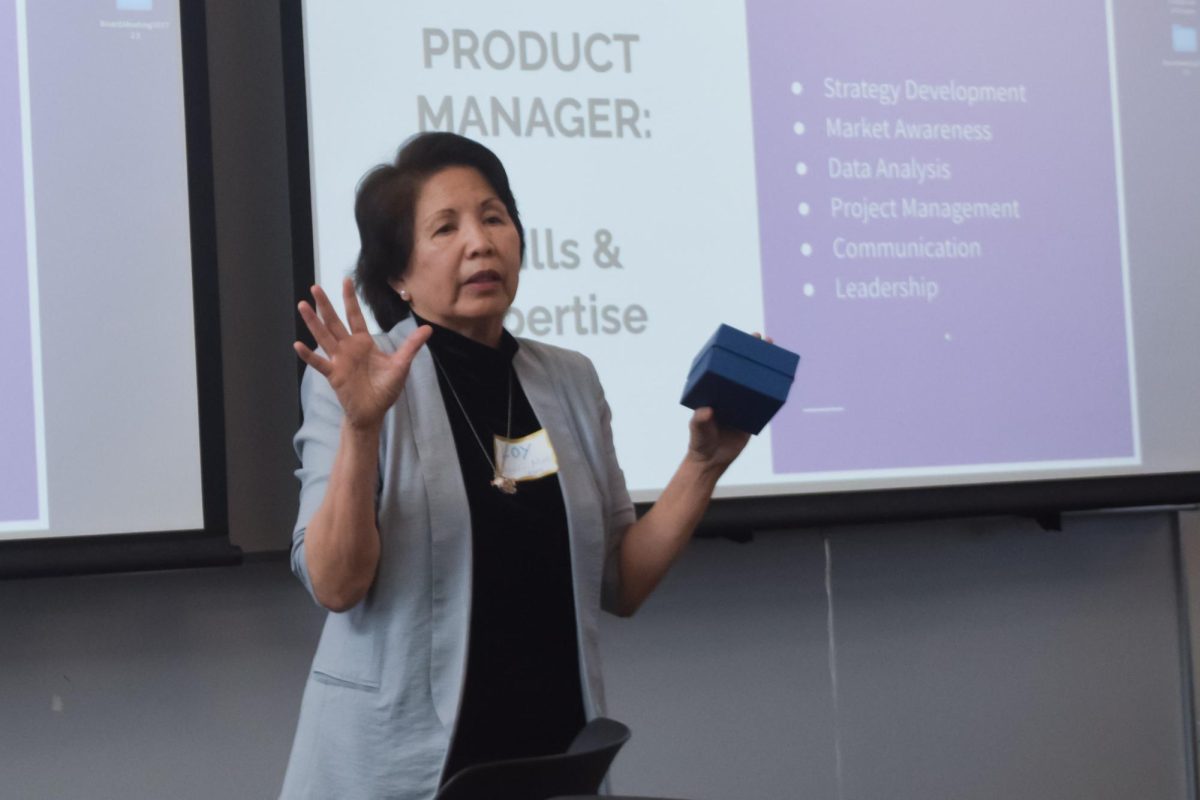Co-written by Gunn HS student Amanda Lee.
For the FUHSD and Palo Alto school district, promoting students’ emotional well-being is very important. Through providing more support and resources throughout their campuses, schools have been taking steps to emphasize students’ mental health.
According to the Mercury News, in January 2016, FUHSD formed a taskforce to address the issues surrounding student stress, because they found that accumulating stress negatively impacts students’ wellness.
For several years, Gunn HS has been changing their school campus environment, hoping to support their students’ well-being on campus after two student suicide clusters, one in 2009 and another in 2014. GHS recently experienced another student suicide in August.
“This is my fourth year at [GHS],” GHS Assistant Principal Tara Keith said. “So I can say that from when I started here, I think there’s been pretty significant changes and a lot of different things.”
According to Keith, GHS hired a Wellness Outreach Worker (WOW) to serve the GHS community by running the Wellness Center on campus, providing classes about mental wellness for the staff and students and working with other wellness groups to further promote student wellbeing.
Since the Wellness Center was created, GHS students have been utilizing the space to receive counseling from a professional counseling group, relax with friends, and seek information on different mental health issues. GHS WOW Lauren Rocha explained that after a student’s death in August, the Wellness Center saw more students coming in for help and advice.

“We had a lot of students reaching out and just wanting to learn more about how would they notice [depression] in their friends, and how would they help a friend if they thought that they were thinking about suicide,” Rocha said. “So that definitely was an increase [at the beginning] of the year, and it’s always really good [when we hear] from students that they want to learn more and they’re willing to talk about it.”
In addition, the GHS community has formed organizations to promote community wellness. The Reach, Out, Care, Know (ROCK) club, Bring Change 2 Mind club and Sources of Strength program were all established to advocate for the wellbeing of students and erase the negative stigma in their school.
“I think more people feel more comfortable talking about wellness [now,] because there’s always fun projects related to wellness going on, or poster campaigns, or something like that… whereas before, there [was] a huge stigma around it,” said GHS Wellness Commissioner junior Meghna Singh.
Bring Change 2 Mind president GHS junior Amber Fu originally started her club out of a personal interest in psychology, but the club eventually became a part of the GHS mental health support system.
“Specifically for high school students, [the club] wants to create conversation and make [mental health] something people don’t feel ashamed or afraid to talk about,” Fu said.

GHS English teacher, ROCK teacher advisor and Sources of Strength leader Paul Dunlap believes that all of this progress has changed the mentality students have regarding wellness.
“If I think about what things were like in 2009, and what they’re like now, there’s a big difference, especially in people’s willingness to talk about these issues,” Dunlap said. “The fact that we talk about emotional wellness as just a normal conversation, that’s a shift. People didn’t talk about emotional health as much before. That’s really a tribute to the students for being caring, and willing to talk about this stuff, [and] that’s the biggest advance.”
GHS is not the only school in the Bay Area with clubs heavily advocating for increased support of students’ mental wellness. At MVHS, freshman Jackie Liu explained her way of encouraging others and assist her peers through difficult times.
“I think I do a pretty good job of being there for people when they need to rant about their emotions. I try my best to provide feedback and thoughtful responses,” Liu said, “My goal is to convince them that there is something to be learned in every hardship, and everything, you just have to look for it.”
In addition, MVHS psychologist Sheila Altmann discusses her view in student wellness on the MVHS campus.
“I think we have very admirable levels of support in our school,” Altmann said. “We currently have two full-time school psychologists, we have an addition of full-time life therapist, we have four guidance counselors and we have an intern who’s now a licensed therapist, so that’s actually a large number of mental health professionals on staff. There’s not a lot of schools, I think, that have a lot of support. We have invested in that.”
Other than mentioning ways to get support from administrators and others on campus, MVHS psychologist Sheila Altmann also talks about how students can support themselves emotionally.
“[People] measure their worth, like are they worthy to live based on school, academics, grades,” Altmann said. “Then things have gotten pretty distorted and out of balance.”
Altmann suggests that finding a balance in students’ life is very crucial especially in schools where students are competitive.
“We have to have some pleasure in our lives. So to find the balance, to take care of ourselves is really important,” Altmann said. “ [The people who we care for] love us for the person that we are, and [they will] to try to establish and strengthen the relationship. I think if that is really solid, we wouldn’t be having suicides. That’s my hope.”
























